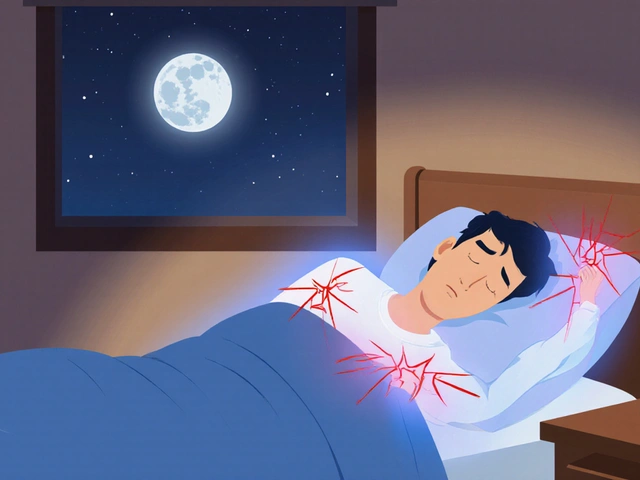Vertigo: What Causes It and How to Get Relief Fast
Vertigo feels like the room is spinning. It’s not just dizziness — it’s a false sense of motion that can make you nauseous, unsteady, or terrified to move. Below you’ll find plain, useful steps to feel better, understand what might be causing it, and know when to call a doctor.
Common causes and how to tell them apart
BPPV (benign paroxysmal positional vertigo) is the most common cause. It happens when tiny crystals in the inner ear move into the wrong place. BPPV usually triggers short, strong spinning spells when you turn your head or roll over in bed.
Vestibular neuritis or labyrinthitis is an inner ear infection or inflammation. That causes longer-lasting vertigo, often with nausea and balance problems. Meniere’s disease brings vertigo plus hearing loss and ear fullness. Migraine-associated vertigo can come with headache or light sensitivity. Less commonly, stroke or brain issues cause vertigo — those usually come with weakness, slurred speech, or double vision.
Simple first-aid and day-to-day tips
If you feel a spinning attack start, sit or lie down immediately. Keep your head still and focus on a fixed point on the ceiling or wall. Avoid sudden movements and don’t drive until you feel steady. Drink water and avoid alcohol — dehydration and booze both make vertigo worse.
For BPPV, the Epley maneuver often ends the spells quickly. It’s a series of head moves that shifts the crystals back where they belong. You can find step-by-step guides and videos from doctors. Don’t try maneuvers if you have neck problems, a recent stroke, or severe cardiovascular issues — see a clinician instead.
Short-term medicines can help with nausea and anxiety during attacks. Meclizine or promethazine reduce motion symptoms. Benzodiazepines like diazepam calm the nervous system but are only for brief use because they cause drowsiness and dependence. If you have Meniere’s, a doctor might suggest a low-salt diet, diuretics, or other treatments.
Vestibular rehabilitation (a physical therapy program) helps when vertigo causes ongoing balance problems. A trained therapist gives exercises that retrain your brain to use other balance cues. Many people see steady improvement in weeks to months.
See emergency care if vertigo comes with sudden weakness, numbness, trouble speaking, severe headache, chest pain, or double vision. Also get urgent help if symptoms start after a head injury or if vertigo lasts for days without improvement.
Small prevention steps matter: stay hydrated, manage migraines, stand up slowly, and avoid quick head turns when you know you’re prone to spells. If attacks are recurring, make an appointment with an ENT or neurologist who treats balance disorders. They’ll run simple tests, confirm the cause, and set a treatment plan so you can get back to normal life without the spinning.

Meclizine for Vertigo: How This Over-the-Counter Option Works
Feeling dizzy but unsure where to turn? Meclizine might just be the over-the-counter hero you've been seeking. This article unravels how Meclizine works its magic against vertigo and what you can expect when using it. Discover the science behind this medication and important tips for its effective use. You'll gain insight into the side effects too—because nothing should surprise you!
View More




